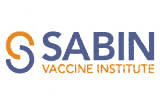
Dakar, Senegal, 5 August 2013 - The Sabin Vaccine Institute’s Sustainable immunisation Financing (SIF) Program today assembled senior officials from 17 countries to share their successes in increasing government budget allocations for national immunisation programs. Greater political commitment and advocacy are building the momentum needed for countries to fully finance their immunisation programs by 2020 and achieve the goals set forth in the Global Vaccine Action Plan (GVAP).
Strategic discussions
During the two-day colloquium, delegates will participate in an open exchange of strategies and best practices that have helped their countries increase commitments to fund national immunisation programs. In panel sessions, delegates will present their legislative activities, conduct peer assessments and discuss innovations in financing, budgeting and advocacy. They will also prepare short-term, country specific advocacy plans designed to make progress on sustainable immunisation financing by 2016.
Challenges ahead
The necessity of comprehensive, uninterrupted national immunisation programs is recognized by Millennium Development Goal Four (reduction of child mortality) and the GVAP, a framework for extending the full benefits of immunisation to every man, woman and child by 2020. However, rising costs due to the addition of new life-saving vaccines and unguaranteed external funding pose serious challenges for national immunisation programs.
“We cannot overlook the power of vaccines. immunisation is one of the most effective and affordable investments that a country can make in its citizens,” said Dr. Ciro de Quadros, executive vice president at the Sabin Vaccine Institute. “As nations increase investment in vaccination programs, they are taking essential measures to save lives while also stimulating productivity and accelerating economic growth.”
Finance for change
The SIF program currently works with 18 countries to facilitate collective action on immunisation financing and has helped organize more than 100 advocacy briefings and peer exchanges to assist those countries. By encouraging the exchange of financial, programmatic and legislative information; establishing relationships with diverse stakeholders; documenting and sharing best management practices; and monitoring performance, the SIF program has helped countries solidify their financial commitments to their immunisation programs.
“Many countries are hindered by the rising costs associated with the introduction of new vaccines,” added Miloud Kaddar, Health Economist, Division of Vaccines and Biologicals, WHO/HQ, Geneva, Switzerland. “We therefore must prioritize finding sustainable sources of funding for national vaccination programs if we are to meet the goals of the Global Vaccine Action Plan.”
Participants and partners
The 17 countries participating in the colloquium are all SIF pilot countries. They are Cameroon, Cambodia, Democratic Republic of Congo, Indonesia, Kenya, Liberia, Madagascar, Mali, Mongolia, Nepal, Nigeria, Republic of Congo, Senegal, Sierra Leone, Sri Lanka, Uganda and Vietnam. All but three countries – Mongolia, Republic of Congo and Vietnam – attended SIF’s first colloquium in 2011 held in Addis Ababa, Ethiopia. The following SIF partners also are attending this year’s meeting: WHO, UNICEF, World Bank, GAVI Alliance and the Bill & Melinda Gates Foundation.
About Sabin Vaccine Institute
Sabin Vaccine Institute is a non-profit organization of scientists, researchers, and advocates dedicated to reducing needless human suffering caused by vaccine preventable and neglected tropical diseases. Sabin works with governments, leading public and private organizations, and academic institutions to provide solutions for some of the world's most pervasive health challenges. Since its founding in 1993 in honor of the oral polio vaccine developer, Dr. Albert B. Sabin, the Institute has been at the forefront of efforts to control, treat and eliminate these diseases by developing new vaccines, advocating use of existing vaccines and promoting increased access to affordable medical treatments. For more information please visit www.sabin.org.
GAVI is funded by governments [Australia, Canada, Denmark, France, Germany, Ireland, Italy, Japan, Luxembourg, Netherlands, Norway, Republic of Korea, Russia, South Africa, Spain, Sweden, United Kingdom, United States], the European Commission, the Bill & Melinda Gates Foundation, as well as private and corporate partners [Absolute Return for Kids, Anglo American plc., The Children’s Investment Fund Foundation, Comic Relief, Dutch Postcode Lottery, His Highness Sheikh Bin Zayed Al Nahyan, JP Morgan, “la Caixa” Foundation, LDS Charities and Vodafone].
Click to view the full donor list.
